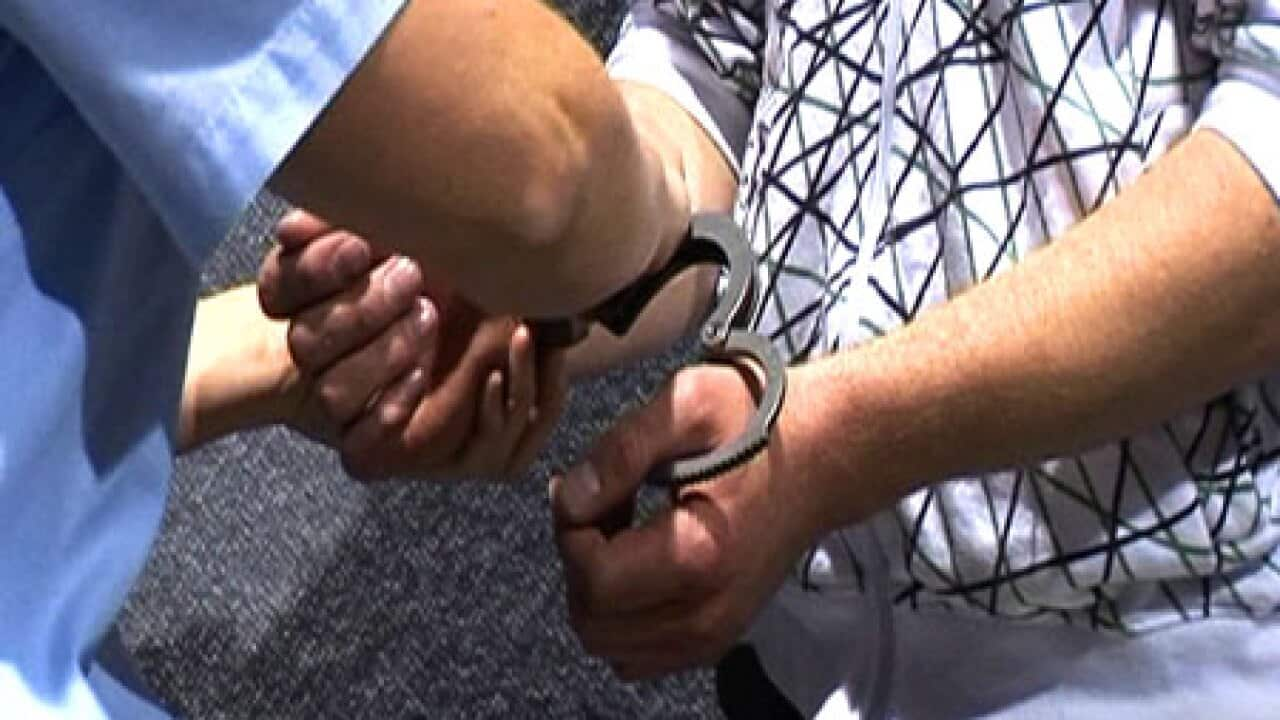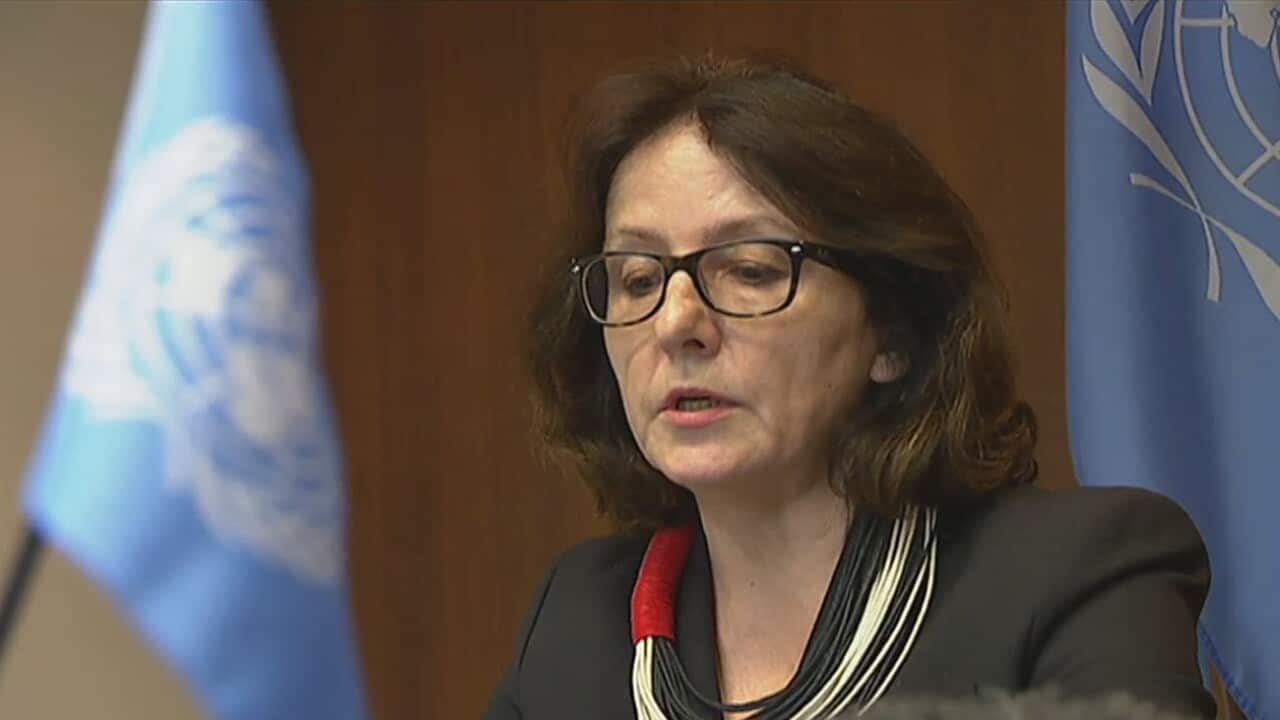UN special rapporteur Victoria Tauli-Corpuz today gave her initial report on the impact of a government takeover of remote communities and a range of other areas, as Canberra pushes its bid to join the UN Human Rights Council.
Ms Tauli-Corpuz told NITV News her role is to visit countries to see the situation of how Indigenous peoples’ rights are being respected, protected or violated.
Following her 15-day tour visit, Ms Tauli-Corpuz will draft a report and present it before the Human Rights Council in the United Nations in September.
She told NITV News: “The report will contain my initial observations, my analysis of the situation, as well as recommendations… I am presenting to the government as well as the Indigenous peoples themselves.”
Aboriginal and Torres Strait Islanders make up just three per cent of Australia's population of 23 million people, but have disproportionately high rates of suicide, alcohol abuse, domestic abuse and imprisonment, tracking near the bottom in almost every economic and social indicator.
She described the failure of progress across a range of policy areas as “alarming”.
“There’s not as much progress achieved in those areas, and this is also seen in the government report , the Close the Gap Report, the Prime Minister’s report, only one of the seven targets are on track of being achieved.”
Ms Tauli-Corpuz believes the government’s programs haven’t delivered.
“I can appreciate that there were efforts to do some things, like this Indigenous Advancement Strategy, this Empowered Communities program. But I still think that the key recommendations in terms of having a review of the land titles, for instance [haven’t been followed].
“The land claims that Indigenous peoples are coming up with are more coherent and programed to how Indigenous peoples rights to the lands can be better respected, and also to lessen the punitive approaches to Indigenous peoples,” she explained.
Ms Tauli-Corpuz also pointed at various issues affecting Indigenous Australians, such as high rates of youth detention, violence against women and child removals.
“I would say that there is not enough political will to deal with these issues, because if there is we will see a reduction in terms of people getting incarcerated. We will see an improvement in terms of homes, in terms of housing projects being made to suit the needs of Indigenous peoples, and lesser violence against women and family violence. But the statistics that I have seen don’t show that, they don’t show those kinds of improvements. So I think there is really a lot that the government needs to do to be able to deal with these issues in the most serious and sustained fashion.”
She also criticised the government’s controversial Indigenous Advancement Strategy which saw federal funding for Indigenous programmes cut by $534 million.
“Its implementation has been bureaucratic, rigid and wasted considerable resources on administration. As I have been travelling across the country, I have repeatedly been told about the dire consequences of the Indigenous Advancement Strategy."
However, she did praise the government’s efforts in some areas of Closing the Gap, but said much more needed to be done to build on initial gains by utilising Indigenous professionals.
“In order for the next iteration of the implementation plan for the Health Plan to be successful, the Government must value and prioritise the leadership of Aboriginal and Torres Strait Islander people,” she wrote in her preliminary report.
Ms Tauli-Corpuz also told NITV News she believes Indigenous-led solutions should be followed more thoroughly.
“I believe the Indigenous peoples themselves are aware of what the problems are. They are the ones who have the possibility of looking into the problems and doing things at the level of the community and family and try to rectify these problems... Who else will know better how to work out a problem, if not the people themselves that are directly affected or who are directly experiencing these realities?"
MORE ON DOMESTIC VIOLENCE

10 women we need to listen to about Domestic Violence
The UN rapporteur added that not only are Inidgneous people "missing from the story", also government support has been "far in between" and not sustained.
"I have received reports of reduction or defunding of all kinds of community-controlled organisations and I think that is really very sad,” she said.
Ms Tauli-Corpuz also made mention of the aspirations of Indigenous Australians who hope to enter treaty talks with the government, and expressed that the UN would back the move.
“If the Indigenous peoples recommend and that the government accepts the need for treaty negotiations between them and the Indigenous peoples, the United Nations will definitely support that. If these are the efforts to really ensure real reconciliation between the government and the Aboriginal and Torres Strait Islander peoples … many of the UN bodies would support such an effort.”
Despite the issues, Ms Tauli-Corpuz said she is confident things will improve.
“I’ve met with the peak organisations and I can see their serious effort to do something about the problems … I see movement in terms of these peak organisations and the community-controlled organisations having a really sustained deeper dialogue with the government, and the thrashing out of how the problems can be addressed.
“I sensed that they [the government] are open to having that conversation, so I hope that that happens sooner or later and that a really stronger involvement of Indigenous peoples in formulating policies, programs and initiatives will be insured.
“It’s to the self-enlightened interests to the government of Australia to do that because otherwise it’s like a black mark on them to always have those kinds of reports coming out internationally.”
Join hosts Karla Grant, Rae Johnston, Allan Clarke, Ryan Liddle and Natalie Ahmat for hard hitting news and current affairs when The Point returns weeknights at 9pm.
MORE ON THE POINT

Meet the all-star lineup for NITV's The Point






